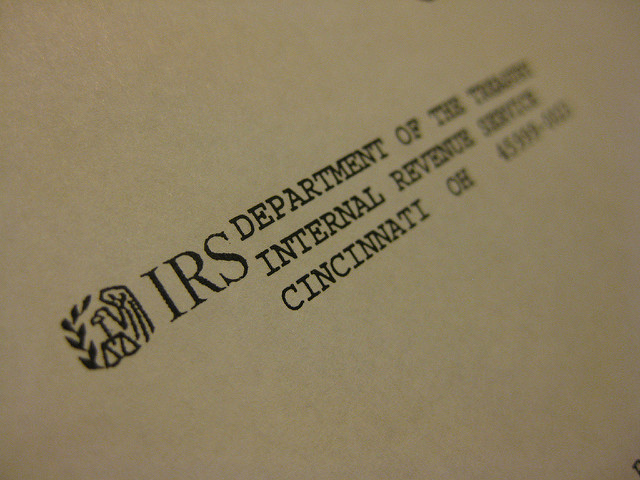
In addition to overhauling the tax code by lowering rates, simplifying the system, and updating the code, the House GOP “Better Way” Tax Reform Blueprint outlines several reforms aimed at creating a more efficient, less-abusive IRS.
The GOP’s outline for a new IRS transforms the way in which the agency operates with a new “service first” mission, the creation of a taxpayer bill of rights, and structural changes to the agency. Given the unaccountability exhibited by employees and officials in past years, changes to the agency are long overdue.
History of Failure and Abuse
The modern IRS has a history of failing to fulfill its basic responsibilities to taxpayers. Most notably, the IRS applied improper, politically motivated scrutiny to tea party and conservative organization during the Obama presidency. As a result of this scrutiny, Congressional investigations revealed that the agency granted just one conservative non-profit tax exempt status over a three year period between 2009 and 2012.
Following this, IRS Chief Commissioner John Koskinen deliberately misled the public and failed to provide crucial information into the investigation surrounding the political targeting while under oath before Congress.
Koskinen and other IRS officials have also claimed the agency is underfunded, with one official even claiming that the agency was “struggling to keep the lights on.” But the facts say otherwise – the agency has proven time and time again that it cannot be trusted to wisely spend taxpayer dollars.
For example, the agency made the costly and illegal decision to hire a litigation-only white shoe law firm for over $1,000 an hour to audit Microsoft. As noted by Congressional investigators, this was completely unnecessary — the agency has 40,000 employees dedicated to enforcement efforts and access to the IRS office of Chief Counsel or a Department of Justice attorney for audits. But instead, the agency chose to hire an expensive law firm for at least $2.2 million.
The waste doesn’t end there. Other investigations have caught the IRS wasting over 500,000 hours, or $23.5 million a year on union activities, and show that they gave 57 contracts worth a total of $18.8 million to corporations that had federal tax debt or a felony conviction.
Need for A Service First Mission
Quality service has never been a priority for the IRS. In recent years, this has become only more pronounced as frustrated and confused taxpayers seeking help by calling the IRS have found themselves “courteously disconnected” – the term the agency uses when it cannot take your call. According to the National Taxpayer Advocate, in 2015, the IRS not-so-courteously disconnected 8.8 million taxpayers.
Needs for customer service at the IRS have reached such dire levels partly because we have such a complicated tax code, which stretches to 74,608 pages long. From 2010 to 2015, average wait times have tripled from 10.8 minutes to more than 30 minutes according to the Government Accountability Office (GAO). Additionally, GAO reported that during fiscal year 2015 the IRS had offered “the lowest level of telephone service”. Only 38% of taxpayers who called were able to reach an IRS representative.
Most taxpayers fear being audited and they deserve to receive all the help they need. By refocusing on a “service first” mission, taxpayers can lessen their fears knowing full well that they will get the help they need.
Taxpayer Bill of rights
One way the IRS can better respect taxpayers is through an enshrined “taxpayer bill of rights,” as the House GOP plan proposes. The plan lays out ten rights that taxpayers should expect from the IRS. These include:
• Be informed
• Quality service
• Pay no more than the correct amount of tax
• Challenge the position of the IRS and be heard
• Appeal a decision of the IRS in an independent forum
• Finality
• Privacy
• Confidentiality
• Retain representation
• A fair and just tax system
Having quality rights and having them specifically laid out in such a form will enable taxpayers to hold the IRS accountable for their actions and ensure that taxpayers and their information are treated properly. Taxpayers will be guaranteed the basic rights most Americans would say should be automatically expected.
The IRS has proven itself to be a potentially-dangerous arm of federal power. It’s important that the natural authority given to agencies like the IRS be checked with strong protections for ordinary, everyday taxpayers.
Organizational Reform for the Agency
Reforms outlined in the Better Way plan also propose streamlining the organizational structure to the agency. While the tax code is overly complex, so too is the IRS inefficiently structured. One solution to this is separating the agency into multiple units – a families and individuals unit, a business unit, and a small claims court.
• The families and individuals unit will focus on providing state of the art customer service so that taxpayers can get efficient help and answers to their tax questions.
• The business unit will focus on administering the new tax code for businesses of all sizes and types, including specialists with expertise on the issues facing start-up entrepreneurs and small businesses and specialists with expertise on the issues facing large domestic companies and American-based global corporations.
• The “small claims court” unit will be independent of the new IRS. This will allow routine disputes to be resolved more quickly, so that small businesses no longer spend more in legal fees to resolve a dispute with the IRS than the amount of tax that was at stake.”
Just as a taxpayer bill of rights enshrines the service that taxpayers must receive, these structural reforms will ensure that the agency is in a better position to do its job.

